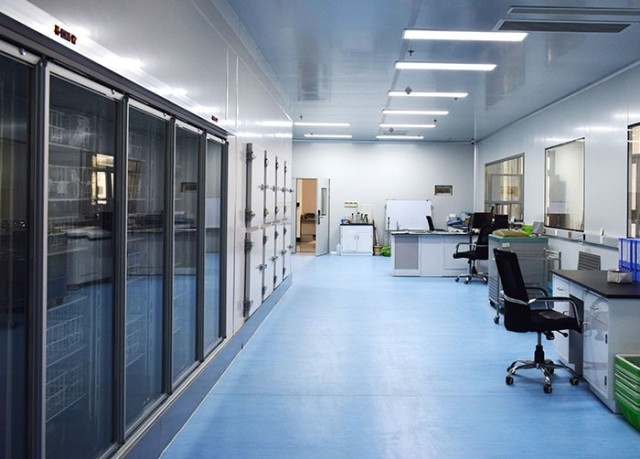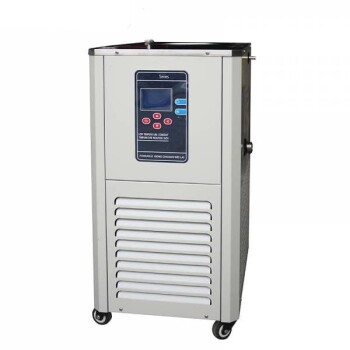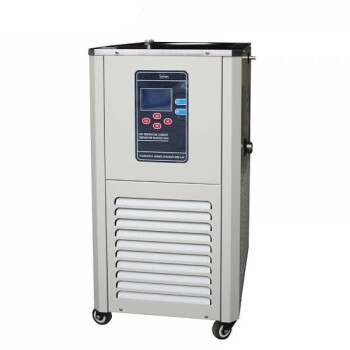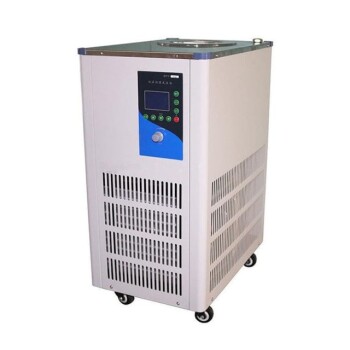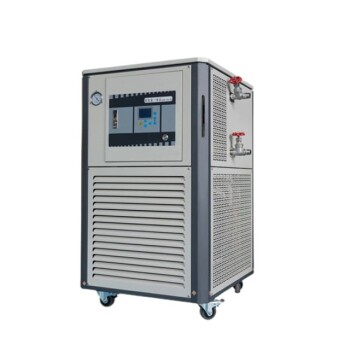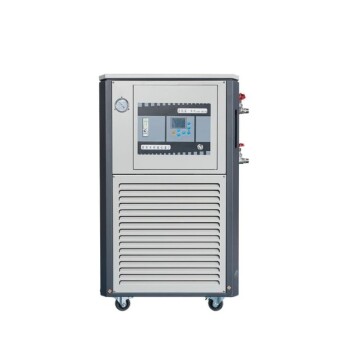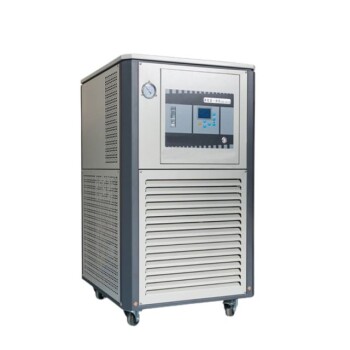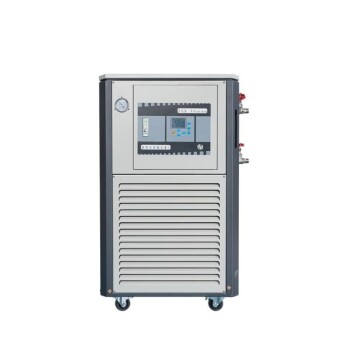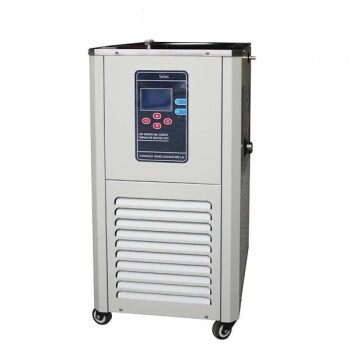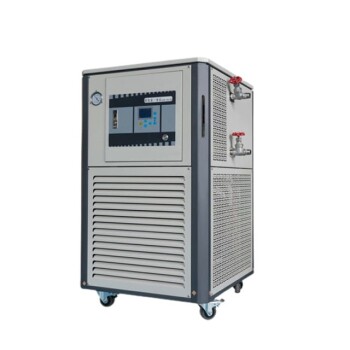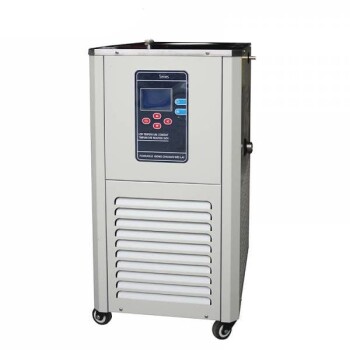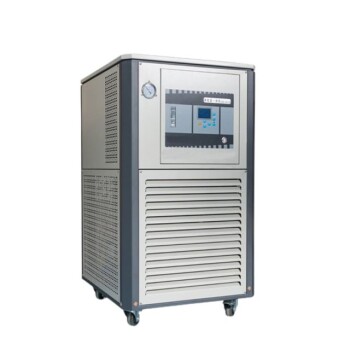Types of Laboratory Refrigeration Equipment
Ice Maker
The ice maker is a critical component in laboratory refrigeration systems, tasked with the essential function of generating ice. This process is achieved through the strategic cooling of water, which is facilitated by the evaporator. The evaporator operates by leveraging refrigerant, a substance with a high heat-absorbing capacity, which is drawn from the refrigeration system.

To delve deeper into the operational mechanics, the refrigerant, upon entering the evaporator, transitions from a high-pressure liquid to a low-pressure gas. This phase change is a key driver in the cooling process, as it absorbs heat from the surrounding water, thereby lowering its temperature. The cooled water then solidifies into ice, which can be harvested and utilized for various laboratory applications.
The efficiency of the ice maker is not solely dependent on the refrigerant's properties but also on the design and maintenance of the evaporator. A well-maintained evaporator ensures optimal heat exchange, thereby enhancing the ice maker's performance. Additionally, the type of refrigerant used can significantly impact the system's efficiency and environmental footprint.
In summary, the ice maker's role in laboratory settings is indispensable, providing a reliable source of ice through a carefully orchestrated process involving refrigerant, the evaporator, and the cooling of water. This equipment is essential for maintaining the integrity of experiments and processes that require controlled cooling and ice.
Freeze Dryer
Freeze dryers are sophisticated cold drying equipment designed to preserve materials by freezing them and subsequently sublimating the water content. This process, known as lyophilization, relies on the principle of sublimation, where ice directly transitions from a solid to a gaseous state without passing through the liquid phase. This method is particularly effective for preserving the structure, texture, and nutritional value of the material, making it ideal for applications in the food industry, pharmaceuticals, and biological research.

The freeze-drying process typically involves several stages:
- Freezing: The material is rapidly frozen to create a solid matrix with ice crystals.
- Primary Drying (Sublimation): The frozen material is placed under a vacuum, lowering the pressure and allowing the ice to sublimate directly into water vapor, which is then removed by a condenser.
- Secondary Drying (Desorption): Any remaining unbound water molecules are removed through further lowering of pressure and application of heat.
This method ensures that the material retains its original properties, making freeze-drying a preferred technique for preserving heat-sensitive and volatile substances.
Low Temperature Constant Temperature Bath
A low temperature constant temperature bath is an indispensable tool in laboratories, offering a precisely controlled environment for a variety of temperature-sensitive tests and experiments. This equipment is particularly useful for maintaining a stable temperature, which is crucial for accurate and reproducible results in scientific research.

The primary function of a low temperature constant temperature bath is to provide a stable and consistent temperature environment. This is achieved through advanced thermoregulation systems that can maintain temperatures within a narrow range, often as low as -80°C or lower. Such precision is essential for experiments involving biological samples, chemical reactions, or material testing, where even minor temperature fluctuations can significantly impact outcomes.
In addition to its role as a constant temperature provider, this bath can also function as a heat or cold source. This dual capability allows it to both cool and heat samples, making it versatile for a wide range of applications. For instance, it can be used to simulate extreme environmental conditions, such as those encountered in space or deep ocean research, or to conduct accelerated aging tests on materials to predict their long-term performance.
The operational efficiency of a low temperature constant temperature bath is further enhanced by its ability to circulate the temperature-controlled medium, ensuring uniform heat distribution throughout the bath. This circulation feature is particularly beneficial for larger samples or multiple samples, as it helps to maintain consistent conditions across all test subjects.
Overall, the low temperature constant temperature bath is a vital piece of equipment in any laboratory setting, providing the reliability and precision needed for modern scientific research and development.
High and Low Temperature Circulation Device
The High and Low Temperature Circulation Device is a sophisticated piece of laboratory equipment designed to maintain precise temperature control within a fully closed system. This device integrates several key components to achieve its function: a refrigeration unit for cooling, a heating unit for warming, a circulation system for fluid movement, and a control system for managing the entire process.

One of the standout features of this device is its fully closed design, which includes a liquid expansion container. This container is crucial for managing the thermal expansion and contraction of the liquid within the system, ensuring stability and preventing any potential leaks or pressure imbalances. The combination of these components allows the High and Low Temperature Circulation Device to offer a reliable and efficient solution for maintaining optimal temperature conditions in various laboratory applications.
Related Products
- 5L Chilling Circulator Cooling Water Bath Circulator for Low Temperature Constant Temperature Reaction Bath
- 30L Chiller Water Bath Cooling Circulator Low Temperature Constant Temperature Reaction Bath
- 100L Chilling Circulator Cooling Water Circulator for Low Temperature Constant Temperature Reaction Bath Water Bath Cooling
- 50L Heating Chilling Circulator Cooling Water Bath Circulator for High and Low Temperature Constant Temperature Reaction
- 50L Chiller Water Bath Cooling Circulator Low Temperature Constant Temperature Reaction Bath
